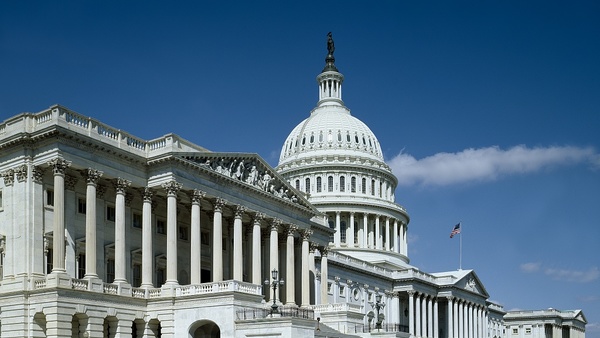
The debacle that led to collapse of healthcare legislation on the House floor last week and the resulting acrimonious finger-pointing among Republicans could hurt the chances that substantive legislation, including a Dodd-Frank overhaul, may pass this year.
“It makes a complicated matter a bit more complicated,” said Ryan Donovan, CUNA’s chief advocacy officer.
Although there had been discussions about a Dodd-Frank overhaul coming up early this year, that may slip to the Summer or Fall, said Brad Thaler, NAFCU’s vice president for legislative affairs.
Last week, House Speaker Paul Ryan (R-Wis.) was forced to pull the GOP’s effort to repeal and replace the Affordable Care Act, widely known as Obamacare because he did not have the votes needed to pass the measure.
President Trump initially blamed Democrats for the setback, but by Sunday, he blamed conservative House members of the Freedom Caucus, as well as the Club for Growth and the Heritage Foundation.
As a result, “skepticism over the content and potential impact of legislation coming to the floor have been significantly heightened,” said Scott Lilly, a senior fellow at the liberal Center for American Progress and a former Democratic staff director of the House Appropriations Committee.
Members are more unlikely to stick their necks out on future legislative efforts, he said.
“A significant portion of the Republican Conference feels markedly more vulnerable and less willing to take risks that will negatively impact voters,” following the healthcare collapse, Lilly said.
Republican leaders have announced they now want to move on to comprehensive tax reform.
But the continuing resolution that is funding large parts of the federal government expires on April 28 and Congress must consider a new CR or risk a government shutdown.
In addition, Congress must pay attention to other deadlines and enact a Fiscal Year 2018 budget blueprint, the 2018 appropriations bills and extend the debt limit.
“I think doing anything on Dodd-Frank unless tied to one of these must-do pieces of legislation is highly unlikely this year,” said G. William Hoagland, senior vice president at the Bipartisan Policy Center, a Washington think tank and former budget and appropriations director for former to Majority Leader Bill Frist (R-Tenn.).
Hoagland, who spent decades as the Republican staff director of the Senate Budget Committee, said critics of the CFPB might be able to attach provisions making the agency subject to the appropriations process in any budget reconciliation bill.
That is a complex process that would require enactment of a budget resolution. Hoagland said it is a “stretch,” but it could be done if there is a desire to rein in the CFPB.
Lilly said if Republicans want to enact any legislation, they should be seeking leaders who “are more moderate and more rational.”
He added that House Financial Services Chairman Jeb Hensarling (R-Texas), a rock-hard conservative, likely could not fill that role.
Meanwhile, policymakers are working on three separate tracks. President Trump has directed Treasury Secretary Steven Mnuchin to meet with financial regulators, including NCUA, to make recommendations on a new regulatory regime.
In the House, Hensarling is expected to release his own bill in the coming weeks.
On the Senate side, new Senate Banking Chairman Mike Crapo (D-Id.) and committee ranking Democrat Sherrod Brown (D-Ohio) are publicly soliciting ideas that would allow financial companies to operate in a more efficient and effective manner.
They have set a deadline of April 14 for those recommendations.
Meanwhile, a veteran Senate Democratic aide cast doubt on whether any large overhaul could pass the Senate, where it often takes a 60-vote majority to pass legislation.
“Big sweeping changes will never get through the Senate, even if they try to attach provisions to must pass appropriations bills,” said Jim Manley, a former senior aide for then-House Minority Leader Harry Reid (D-Nev.) and now director of the communications practice at OGA Public Affairs.
Such comments should not dissuade credit unions, Donovan said.
“We’re going to have to fight to get on the agenda,” he said.
And Thaler said that Crapo is looking for a middle ground that could pass the Senate.
“Crapo wants to find bipartisan relief that can get to the floor,” he said.


